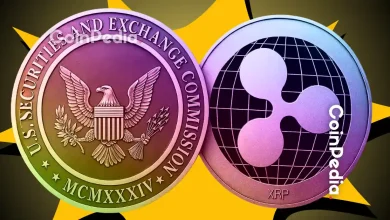
SBI, Ripple's major shareholder, is driving XRP adoption in Asia, leveraging Japan's clear regulations.
SBI's existing infrastructure, like SBI Remit, and potential use of XRP as a bridge currency signal significant real-world utility.
Analysts believe this partnership positions Asia as a leader in crypto finance and solidifies XRP's role in global payments.
SBI Holdings, Japan’s leading financial powerhouse and Ripple’s largest external shareholder, is becoming a major driver of XRP’s real-world adoption across Asia. With Japan offering regulatory clarity for crypto, this alliance could become the biggest catalyst for XRP’s global growth.
Ripple and SBI Holdings: A Powerful Alliance
- SBI Holdings is Ripple’s biggest external stakeholder.
- SBI Remit, Japan’s largest money transfer company, already uses RippleNet for cross-border payments.
- SBI VC Trade, a regulated crypto exchange in Japan, provides both retail and institutional investors with direct access to XRP trading.
SBI’s CEO, Yoshitaka Kitao, is a strong supporter of XRP. He has consistently praised XRP as the best digital asset for payments, reinforcing the company’s commitment to Ripple’s technology.
SBI Eyes XRP as a Default Bridge Currency
A recent post on X by GA Spark revealed that SBI is considering using XRP as the default bridge currency in its payment systems. This move could drastically reduce transaction costs and settlement times across the banking and financial sector.
Notably, the SBI Remit-RippleNet corridor already handles billions in remittance volume, and this new shift could accelerate XRP’s integration further.
Japan’s Clear Crypto Rules Give XRP an Edge
Unlike the U.S., Japan offers clear regulatory classification for XRP, recognizing it as a crypto asset—not a security. This eliminates legal uncertainty and creates a stable environment for companies like Ripple and SBI to build XRP-based solutions.
SBI’s Strategic Moves Hint at a Bigger Plan for XRP
Crypto analysts, including GA Spark, believe that SBI is quietly laying the foundation for large-scale XRP utility across Asia. With infrastructure already in place, continued adoption could make XRP a key settlement asset in global finance.
If this momentum continues, the Ripple-SBI alliance could:
- Boost institutional adoption of XRP.
- Help position Asia as a leader in crypto-powered finance.
- Solidify XRP’s role in cross-border remittances and payments.
The Future of XRP Might Start in Japan
With strong institutional backing, a supportive regulatory environment, and growing real-world use cases, the SBI-Ripple partnership could define the next chapter in XRP’s global adoption.As Japan leads the way in embracing financial innovation, this strategic collaboration may soon become the gold standard for blockchain-powered payments in Asia—and possibly the world.
Never Miss a Beat in the Crypto World!
Stay ahead with breaking news, expert analysis, and real-time updates on the latest trends in Bitcoin, altcoins, DeFi, NFTs, and more.
FAQs
XRP acts as a bridge asset, enabling near-instant, low-cost settlements without relying on multiple banking intermediaries.
XRP powers DeFi, tokenized assets, micropayments, NFTs, gaming, and digital currencies, enabling fast, low-cost transactions on the XRP Ledger.
Ripple partners with Bhutan, Palau, and banks to build digital currencies and enable fast, low-cost cross-border payments using XRP.







